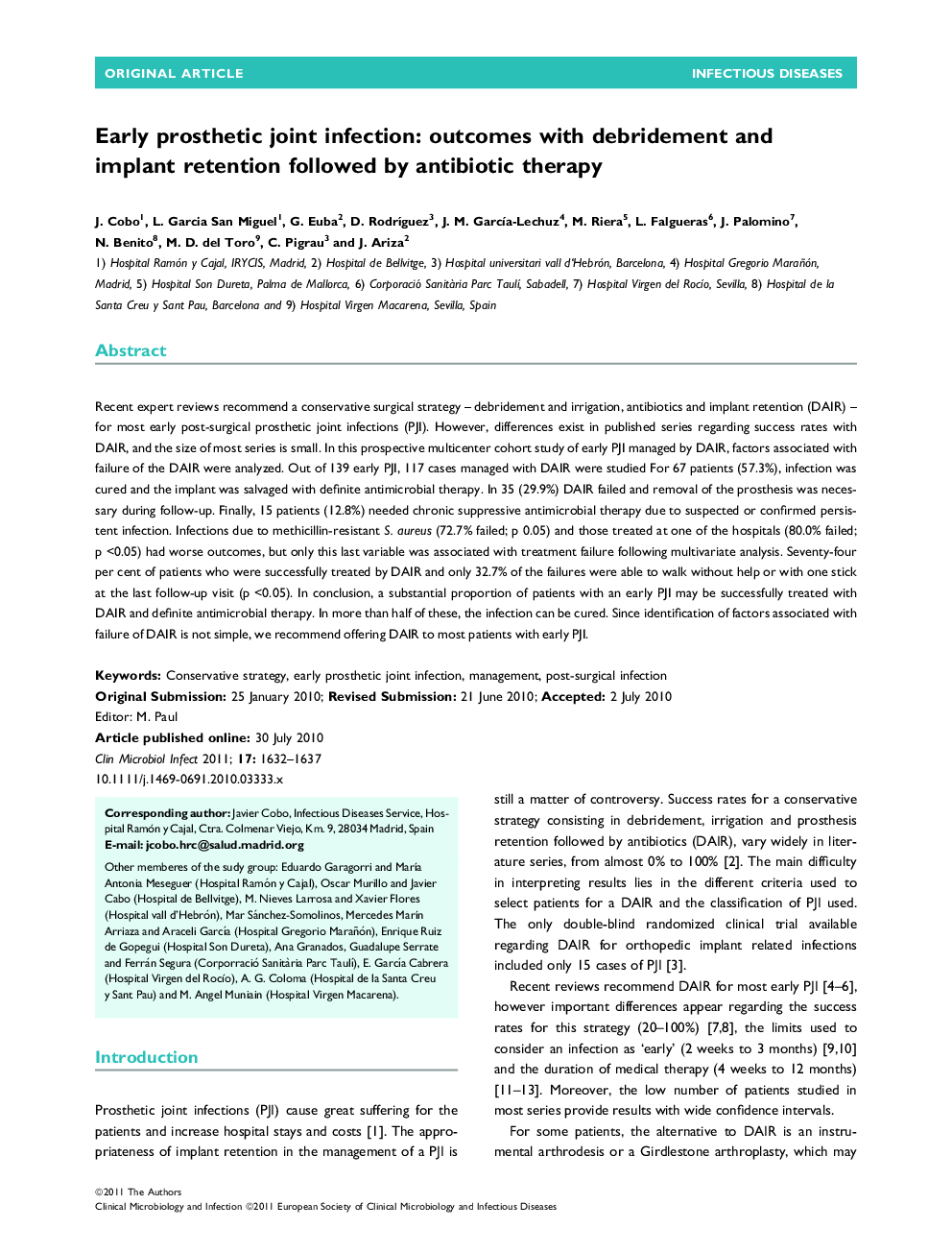| Article ID | Journal | Published Year | Pages | File Type |
|---|---|---|---|---|
| 3397584 | Clinical Microbiology and Infection | 2011 | 6 Pages |
Recent expert reviews recommend a conservative surgical strategy – debridement and irrigation, antibiotics and implant retention (DAIR) – for most early post-surgical prosthetic joint infections (PJI). However, differences exist in published series regarding success rates with DAIR, and the size of most series is small. In this prospective multicenter cohort study of early PJI managed by DAIR, factors associated with failure of the DAIR were analyzed. Out of 139 early PJI, 117 cases managed with DAIR were studied For 67 patients (57.3%), infection was cured and the implant was salvaged with definite antimicrobial therapy. In 35 (29.9%) DAIR failed and removal of the prosthesis was necessary during follow-up. Finally, 15 patients (12.8%) needed chronic suppressive antimicrobial therapy due to suspected or confirmed persistent infection. Infections due to methicillin-resistant S. aureus (72.7% failed; p 0.05) and those treated at one of the hospitals (80.0% failed; p <0.05) had worse outcomes, but only this last variable was associated with treatment failure following multivariate analysis. Seventy-four per cent of patients who were successfully treated by DAIR and only 32.7% of the failures were able to walk without help or with one stick at the last follow-up visit (p <0.05). In conclusion, a substantial proportion of patients with an early PJI may be successfully treated with DAIR and definite antimicrobial therapy. In more than half of these, the infection can be cured. Since identification of factors associated with failure of DAIR is not simple, we recommend offering DAIR to most patients with early PJI.
